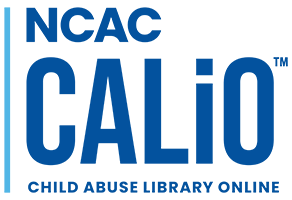Log into CALiO™or contact the librarians to obtain publications.
Alves, R. T., Nelson-Gardell, D., Tavares, M., & Young, T. L. (2019). Developing a functional code system to analyze forensic interviews with suspected victims of child sexual abuse. Child and Adolescent Social Work Journal, 36(3), 305-316. DOI:10.1007/s10560-019-00612-z
Benson, M. S., & Powell, M. B. (2015). Evaluation of a comprehensive interactive training system for investigative interviews of children. Psychology, Public Policy, and Law, 21(3), 309-322. DOI:10.1037/law0000052
Lamb, M. E. (2016). Difficulties translating research on forensic interview practices to practitioners: Finding water, leading horses, but can we get them to drink? American Psychologist, 71(8), 710-718. DOI:10.1037/amp0000039
Lamb, M. E., Brown, D. A., Hershkowitz, I., Orbach, Y., & Esplin, P. W. (2018). Tell me what happened: Questioning children about abuse. John Wiley & Sons.
Lamb. M. E., Sternberg, K., Orbach, Y., Hershkowitz, I., Horowitz, D., & Esplin, P. (2002). The effects of intensive training and ongoing supervision on the quality of investigative interviews with alleged sex abuse victims. Applied Developmental Science, 6, 114-125. DOI:10.1207/S1532480XADS0603_2
Lamb. M. E., Sternberg, K., Orbach, Y., Esplin, P., & Mitchell, S. (2002). Is ongoing feedback necessary to maintain the quality of investigative interviews with allegedly abused children? Applied Developmental Science, 6, 35-41. DOI:10.1207/S1532480XADS061_04
Powell, M. B., Fisher, R. P., Hughes-Scholes, C. H. (2008). The effect of intra- versus post-interview feedback during simulated practice interviews about child abuse. Child Abuse & Neglect, 32, 213-227. DOI:10.1016/j.chiabu.2007.08.002
Steele, L. C., & National Children’s Advocacy Center. (2018). Continuous skill building for child forensic interviewers: A research-to-practice summary. Huntsville, AL: National Children’s Advocacy Center.
Stolzenberg, S. N., & Lyon, T. D. (2015). Repeated self-review and peer review leads to continuous improvement in child interviewing performances. Journal of Forensic Social Work, 5, 20-28. DOI:10.1080/1936928X.2015.1068721
Wolfman, M., Brown, D., & Jose, P. 2016). Examining forensic interviewer’s perceptions of practice-focused supervision. Australian and New Zealand Journal of Criminology, 50(4), 566-581. DOI:10.1177/0004865816655588
Yii, S. B., Powell, M. B., & Guadagno, B. (2014). The association between investigative interviewer’s knowledge of question type and adherence to best-practice interviewing. Legal and Criminological Psychology, 19(2), 270-281. DOI:10.1111/lcrp.12000
Bibliography
Additional Resources
Online trainings in:
- Mentoring and Consultation Groups for Child Forensic Interviewers
- Building Forensic Interviewing Skills Online Training
